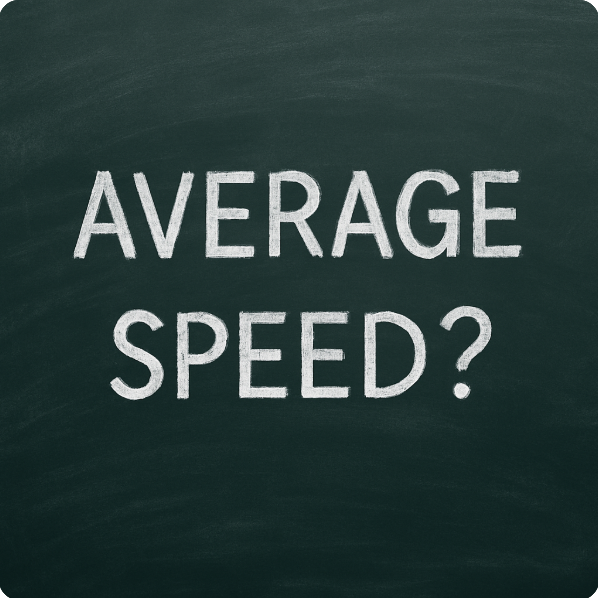Anoff Akonnor
Ghana
12th July, 2025
To Whom It May Concern,
I wish to publicly raise an important point concerning a mathematics question from the recent WAEC BECE 2025 Mathematics paper, which may unintentionally mislead students. This is not only to seek clarification but also to advocate for greater precision in setting questions that guide countless young learners across the country and beyond.
Mathematics is a discipline that thrives on logical reasoning and precise language. When questions are not clearly worded, it can lead to confusion and unfair marking, especially in high-stakes examinations like the BECE.
Context of the Question
The question in question was part of the WAEC BECE 2025 Mathematics paper, specifically Question 6(c).
It involved a scenario where an individual named Adamu was travelling from Kadumgu to Datanu, making a stop at Cooltown along the way. The question required students to analyze the journey, including the effect of a rest period on the calculation of average speed.
The official solution provided by WAEC calculated the average speed based on the total time taken for the journey, including the rest period. However, the question's wording left room for interpretation regarding whether the rest period should be included in the total travel time.
This ambiguity can lead to different interpretations by students, potentially resulting in unfair marking if a student arrives at a logically valid but different conclusion.
As a mathematics educator, I believe it is crucial to ensure that examination questions are worded with utmost clarity to avoid any misinterpretation. Mathematics is not just about numbers; it is about understanding concepts and applying them logically.
I urge WAEC and other examination bodies to consider the implications of ambiguous wording in mathematics questions. Clear and precise language is essential to ensure that students can demonstrate their understanding without being penalized for misinterpretation.
I hope this letter serves as a constructive contribution to the ongoing dialogue about improving the quality of mathematics education and assessment in our schools.
The Question (paraphrased)
Adamu was travelling a distance of 40 km from Kadumgu to Datanu. Sixty minutes after starting the journey, he made a stop at Cooltown, 10 km from Kadumgu, to rest for 30 minutes. He then continued the journey from Cooltown and reached Datanu 60 minutes later.
(c) If Adamu did not rest but travelled to Datanu within the time, what was his average speed?
Why the official solution is problematic
The official solution by WAEC took the total time for the journey as:
Total time $= 150 \ \text{minutes} = 2.5 \ \text{hours}$
leading to an average speed calculated as:
$$\text{Average speed} = \dfrac{\text{Total distance}}{\text{Total time}}$$
$$\Rightarrow \text{Average speed} = \dfrac{40 \ \text{km}}{2.5\text{h}}$$
$$\Rightarrow \text{Average speed} = 16 \ \text{km/h}$$
However, the question did not explicitly state that Adamu would still take 150 minutes even without resting. The phrase 'If Adamu did not rest but travelled to Datanu within the time' is ambiguous.
Also, using 2.5 hours as the total time assumes that the rest period is included in the total travel time, which is not clearly stated.
Mathematics is no more a science if we take out the logical aspects of it.
A logical alternative interpretation
Reasonably, if Adamu did not stop to rest for 30 minutes, then his journey should have taken less time to complete:
\[ \begin{align*} \text{Original total time} &= 150\ \text{minutes} \\ \text{Subtract rest period}\\ \Rightarrow & \quad 150\ - 30 \\ \Rightarrow & \quad 120\ \text{minutes} \\ \text{Convert to hours}\\ \Rightarrow & \quad 2\ \text{hours} \end{align*} \]
Thus, the average speed would be calculated as:
$$\text{Average speed} = \dfrac{\text{Total distance}}{\text{Time without rest}}$$
$$\Rightarrow \text{Average speed} = \dfrac{40 \ \text{km}}{2\text{h}}$$
$$\Rightarrow \text{Average speed} = 20 \ \text{km/h}$$
Both interpretations are mathematically sound depending on how one understands 'within the time.' This highlights a critical point: mathematics depends heavily on precise language, especially at the Basic Education Certificate Examination (BECE) settings where every mark counts.
Why this matters
Examinations should assess clear understanding, not confuse students due to ambiguities in wording. A student who logically concluded that eliminating the rest period reduces the total travel time — and thus calculated 20 km/h — is not incorrect but would be unfairly penalized by the official marking scheme.
A humble recommendation
I respectfully encourage WAEC and similar examination bodies to:
- Phrase such questions with greater clarity, e.g. 'If he did not rest but still completed the journey in the same time taken in minutes...'
- Or to accept alternative logically valid solutions provided the student's reasoning is clearly shown.
Why I make this public
This is not only to seek fairness for students who think critically, but also to uphold the integrity and clarity of mathematics as a discipline. It is important that both teaching and assessment emphasize precise interpretation. As stated earlier, mathematics is no more a science if we take out the logical aspects of it.
Thank you for your attention to this matter. I trust that WAEC will take this feedback into consideration to enhance the clarity and fairness of future examinations.
Yours faithfully,
Anoff Akonnor
(A concerned teacher.)
